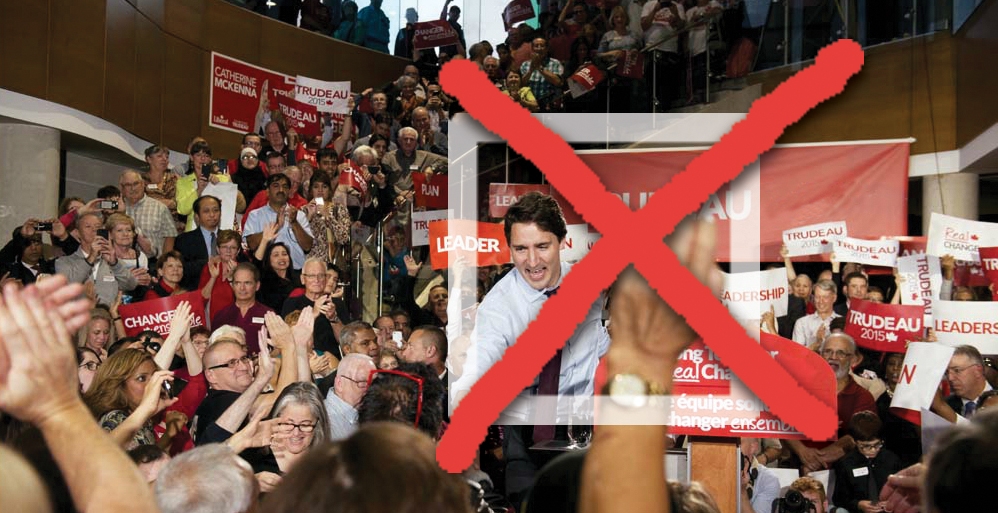
A Guide to Goldbergian management practices in Canada’s public service
Evidence indicates that the federal public service has been quietly moving away from the classical Bureaucratic management approach based on principles devised by Max Weber. According to Weber, the rational, reason versus passion, approach to management is preferable to whims, irrational emotions and intentions of managers. But if present-day practices are any indication, Weber’s theories are being relegated to the junk bin of obsolescence.
Reuben Garrett Lucius Goldberg (1883-1970) was a Pulitzer Prize-winning political cartoonist whose depictions of elaborate, pointless machines made him a wry commentator of bureaucratic structures. Have Weber’s principles been slowly phased out in favour of the Goldbergian machine paradigm? Gone, it seems, are the anachronistic anchors of Weberian-style bureaucracy: the proper division of labour (silos); chain of command (top-down authority); separation of personal and professional time and property (home is home, and work is work); the application of clear and consistent rules (this is the way it’s done), and; selection and promotion based on qualifications (meritocracy).
Poking fun at the public service is as easy as ribbing a postie because an Xmas card arrived in August. It’s really not that person’s fault, but you can’t help but wonder how it happened. Think of the classic, 3-dimensional Mouse Trap kids’ game from the 1960s, and you’ll understand why Goldberg is the new patron saint of bureaucracy. His portrait should be emblazoned on the ‘Welcome to Ottawa’ sign. It is worth exploring some of the evidence.
Contracting and consultants: Six women from Rideau Hall attended a meeting to receive the winner of a national jewellery design competition. A contract was issued to commission a new product for recipients of a prestigious award. Entry in this national competition was voluntary, implying, according to Goldbergian theory, that the winner should have assumed that a contract is both a contract and not a contract. It is a Zen koan. The six women representing the GG could modify, convolute, or scuttle the invitee’s attempt to complete the commission without warning, explanation, or good manners. Said invitee, operating under the obsolete Weberian model, wrongly assumed that a national call for submissions implied that the invitation was serious, warranted the effort and expense, and was more than a dig-the-ditch/fill-the-ditch make-work project for six women and Canada’s creative hobo community.
In fairness to the six, Rideau Hall is a battleground, and one of the most stressful work environments a Canadian can endure, ranking closely behind landmine removal. No wonder it took six of them to commission a piece of jewellery; coincidentally, the same number of commanders it took to plan D-day; one for each beach, plus an extra in case General Eisenhower needed a ‘me’ day. Said jewellery invitee needs to take the soaring levels of PTSD at Rideau Hall into account, and accept that there are only so many debilitating canapés that any one GG staffer can consume before it becomes impossible to return a phone call or pay an outstanding invoice. Next time, study Goldberg before you sign a government contract, and remember; it’s not about deliverables, it’s about the mouse trap.
Public Service training programs: Canada’s public service is a world leader in applied language training, but the Weberian view of language is that of a utility meant for the efficient communication of ideas, orders, and policies. The vocabularies of Dickens and Molière leave little room for whimsy, and cannot accommodate new, ephemeral concepts pertinent to the 21st century workplace. Here are four definitions of commonly used terminology that assume no responsibility for clarification:
Othering. v. meaning, to imply, through words, actions, or private thoughts that another is another other than oneself, according to oneself’s identity or sense of selfness, or; in the case of someone else who sees themselves as the other oneself rather than themselves.
Offlish. n. meaning, bureaucratic jargon, or jargon for jargon. To confuse, to ‘other’ by employing jargon to refer to jargon.
Think design n. meaning, to design thinking for the purpose of improving thinking design. To apply design practices employed in industrial design to bureaucratic practices, as in; think of public servant thinking as one would think design kitchen appliances or jargon.
Team-building exercise. n. meaning, wear your favourite hockey team jersey or bring your favourite stuffed animal to a golf course for a day-long retreat, led by high-billing mindfulness experts who will teach you to eat a meal as the French do, mindful of every bite, followed by warrior yoga in preparation for a sharing session that will help you identify your inner animal guide. Office efficiency will improve dramatically knowing the ‘otters’ are good at ‘offlish’ and the skunks should refrain from ‘othering’.
Project management: Sparks (or, Here-we-go-again) Street rolls up its sidewalks like everywhere else in town, but, for some reason, Sparks sidewalks should be twirling with care-free exoticism. A significant portion of the buildings on this once-vibrant shopping street are now occupied by stuffy, lifeless federal agencies of little or no interest to the general public, like the Library of Parliament or the CBC. No wonder it takes chili poutine to liven the place up. But more must be done, like new benches and fountains; a brilliant solution resulting from think design by the NCC and the City of Ottawa applying heuristic, trial-and-error, design practices depicted by Goldberg himself. Come up with the most convoluted, elaborate scheme seeking the simplest solution. All it takes is a bottomless pit of money, endless public consultation to ensure transparency, and a few sticks of dynamite in 25 years when the sidewalks still roll up. Everybody feels included; nobody feels responsible. Goldberg. Perhaps there is a more efficient use for that stick of dynamite.
Hiring practices: Apply for a job these days and you’ll likely be handed a diversity survey meant to inform managers of your qualifications. Traditional knowledge is deeply valued in a Goldberian public service. For example, a person of Lebanese descent (disclaimer: me) naturally possesses a traditional knowledge of the phonetic alphabet and systems that use Arabic numerals, and is therefore suitable to virtually any job that requires using a keyboard.
Another survey in circulation delves into a prospective employee’s preferred partner type(s) in the bedroom, an inquiry that would offend any applicant from a more traditional culture, whose face would turn purple by such blunt nosiness. In fact, Joan Rivers would blush. Such an applicant may also have difficulty selecting from the 11 gender identities, 9 more than anyone from off-world was ever taught by their parents. Clarification is not provided for those wishing to keep abreast of the gender zeitgeist. The HR person who put it all together will refer you to the webpage from which he/she/singular-they copied and pasted to create the survey. New Canadians, if you feel excluded from the inclusion, should get with the Goldberg program. It’s all meant to make for a better public service.
This article was written to inform and entertain. Any resemblance to situations, persons, or other living things you may have encountered within the Public Service of Canada, its management, or subsidiary agencies is purely in your mind.






